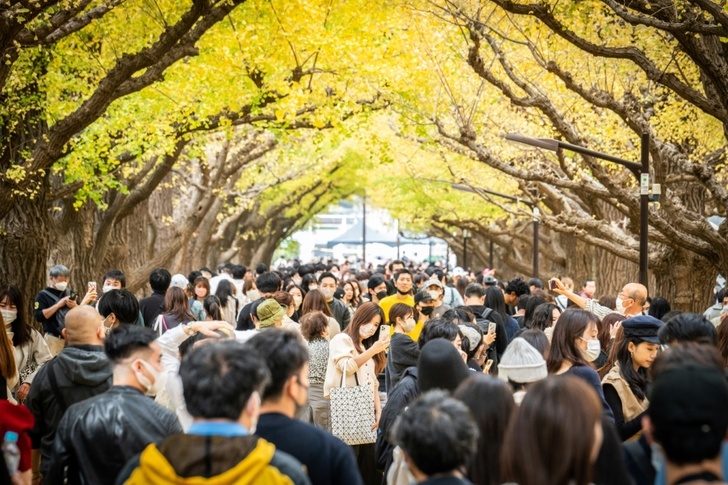Japan's economy shrank in the three months to September due to slower-than-expected consumption, official data showed Tuesday, dashing hopes of another quarter of growth.
Higher import volumes and costs fuelled by the weak yen and the soaring price of commodities such as oil weighed on the world's third-largest economy.
And private consumption did not see a significant jump, despite the end of Covid-19 restrictions.
The surprise negative reading follows three consecutive quarters of growth, after an initial negative reading in the first quarter was revised upwards.
From July to September, Japan's gross domestic product contracted 0.3 percent quarter-on-quarter, missing market expectations of 0.3 percent growth, the government data showed.
Corporate investment was up for the period but private residential investment declined, while an increase in imports overwhelmed an increase in exports, the cabinet office said.
In the three-month period, private consumption grew 0.3 percent, down from 1.3 percent in the second quarter.
The data is preliminary, and GDP figures are often revised in later months.
Taro Saito, senior economist at NLI Research Institute, predicted the gloomy result would be short-lived.
"The contraction this quarter is a one-off phenomenon, and we think the October-December quarter will see growth again," he told AFP.
"Individual consumption and corporate investment both remain strong. A government campaign to support tourism across the country will also likely help boost consumption," Saito added.
Before the data release, analysts had predicted a pick-up in consumption but acknowledged that Japan faces headwinds because of its trade balance.
A slower global economy, which is "likely to be dragged down by tightening in monetary policy, zero-Covid policy in China and geopolitical uncertainties," is also a negative factor for Japan, UBS economists Masamichi Adachi and Go Kurihara said.
"On top of these factors, the secular drag from a shrinking and ageing population and low medium-to-long-term growth expectations cannot be ignored," they added.
Last month, Japanese Prime Minister Fumio Kishida announced a $260 billion stimulus package to cushion the economy from the impact of inflation and the weak yen.
The Japanese currency has tumbled from about 115 against the dollar before Russia's invasion of Ukraine to around 140 on Tuesday, after hitting three-decade lows of 151 yen last month.
The main driver of the yen's fall is the gap between the stance of the Bank of Japan, which is sticking to its long-standing monetary easing policies, and the US Federal Reserve, which has made a series of aggressive rate hikes to tackle inflation.
Japan is heavily reliant on imported energy and also ships in other goods including much of its food.
The country fully reopened its borders to foreign tourists in October, after two and a half years of tough Covid-19 border restrictions.
kh/kaf/cwl
© Agence France-Presse
Your content is great. However, if any of the content contained herein violates any rights of yours, including those of copyright, please contact us immediately by e-mail at media[@]kissrpr.com.
Source: Story.KISSPR.com

